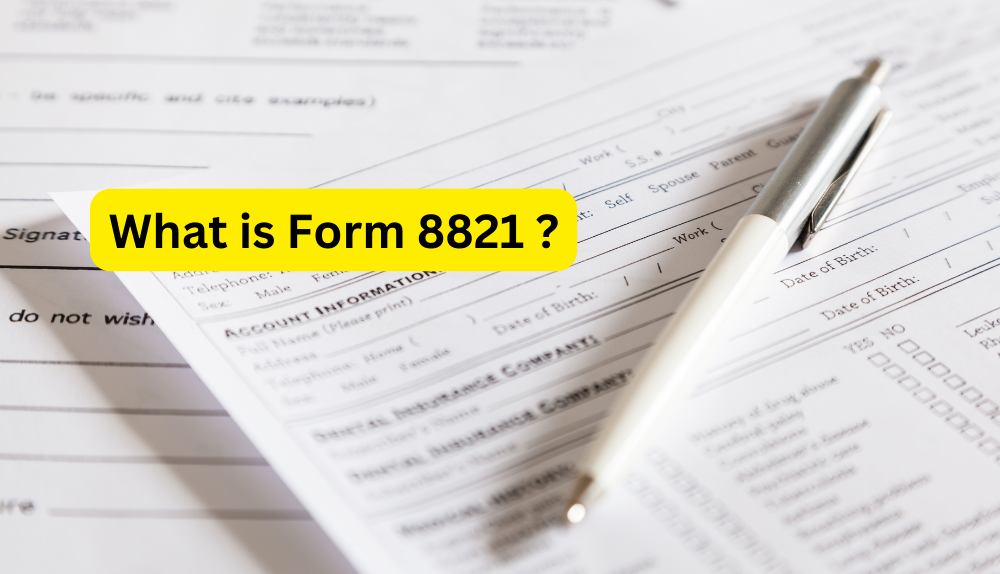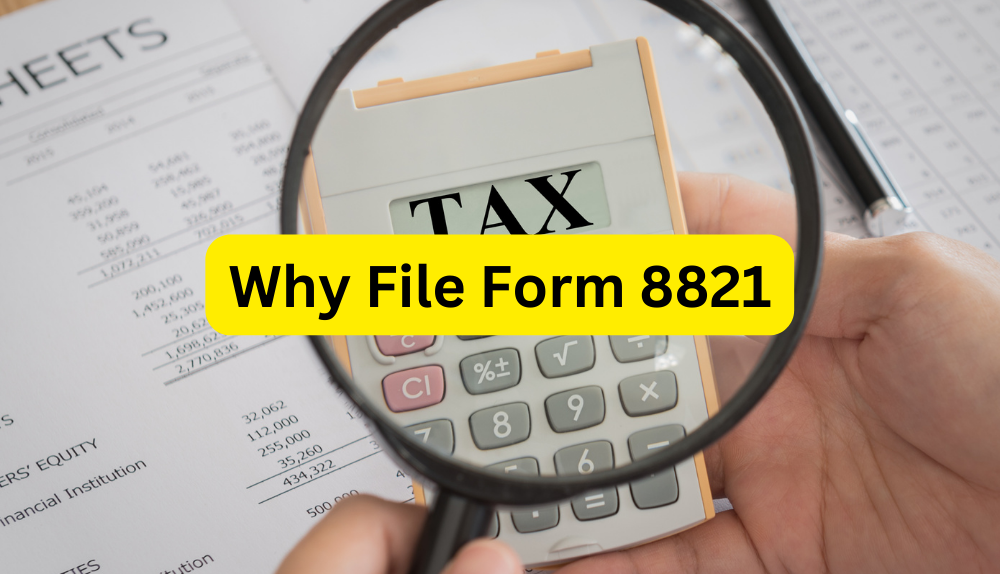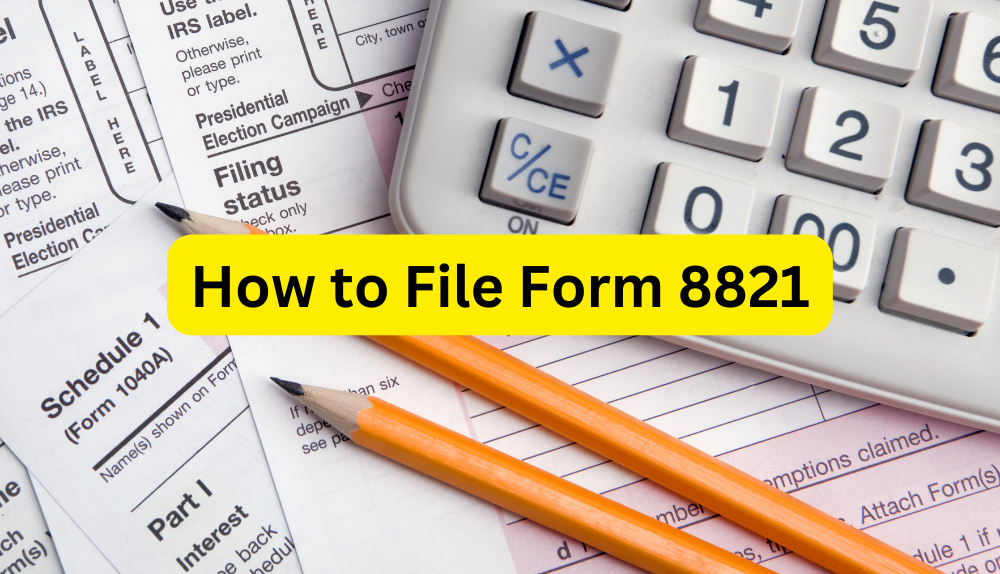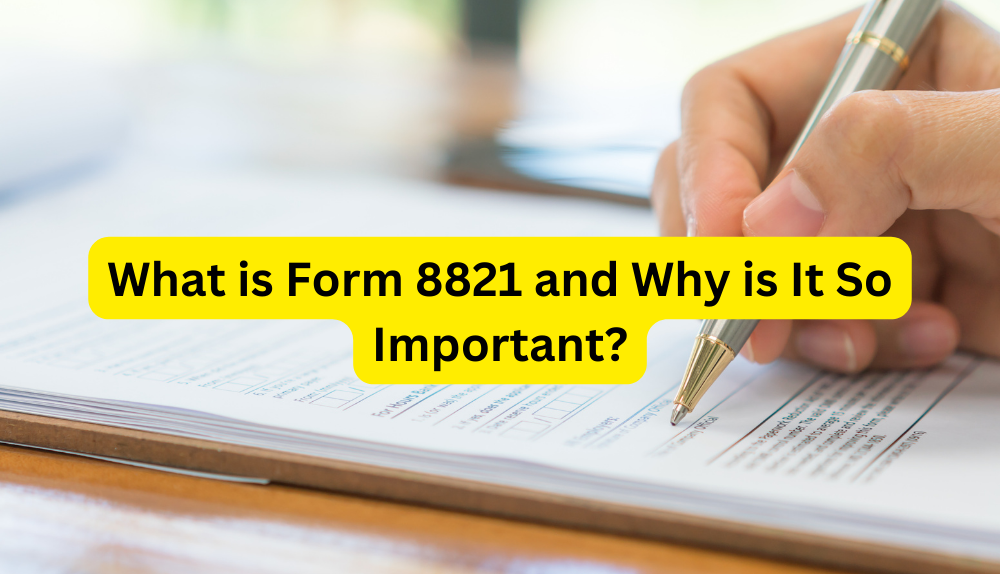Tax season can be really confusing with all the different forms and numbers to deal with. One form that’s often overlooked is Form 8821. Even though it may seem unimportant, it actually plays a crucial role when it comes to handling your taxes. Think of it like having a helpful guide who can talk to the IRS on your behalf, gather important information, and help you navigate through all the complicated tax stuff. This guide is for Form 8821, and understanding its importance can make your tax journey much smoother. In this article, we’ll explain what Form 8821 is, what it does, and why it’s so valuable for every taxpayer to know about.
What is Form 8821?
Form 8821 is an important document used in the United States tax system. It is officially known as the “Tax Information Authorization,” and its primary purpose is to grant permission for someone else, such as a tax professional or a trusted individual, to access and obtain your tax information from the Internal Revenue Service (IRS) on your behalf.

When you fill out Form 8821 and provide it to the designated person, they gain the authority to communicate with the IRS, request copies of your tax returns, and get information about your tax account. However, it’s crucial to note that Form 8821 does not give this authorized person the ability to act on your behalf or make changes to your tax return. Instead, it merely allows them to access the information they need to help you with tax-related matters and provide valuable assistance during tax season.
Why File Form 8821: Empowering Trusted Representatives in Tax Matters
Taxpayers often find themselves facing complex and daunting tax-related challenges, where assistance from a trusted representative becomes invaluable. Form 8821, also known as the “Tax Information Authorization,” serves as a powerful tool to grant authority to designated individuals to access tax information on your behalf. In this article, we explore the key reasons why filing Form 8821 can be essential for taxpayers, offering them the support and expertise needed to navigate through the intricacies of the tax system.

Streamlining Communication with the IRS
Filling out Form 8821 and authorizing a representative enables seamless communication between them and the IRS. Whether it’s requesting copies of past tax returns, inquiring about the status of a tax refund, or seeking information on an outstanding tax liability, the authorized individual can interact directly with the IRS on your behalf. This streamlined communication process minimizes delays and ensures that you receive the necessary information in a timely manner, saving you time and effort.
Access to Tax Information
One of the primary purposes of Form 8821 is to provide your designated representative access to specific tax information. This includes various IRS transcripts, such as tax return transcripts, wage and income transcripts, and account transcripts. With these insights, your representative can thoroughly review your tax history, identify potential errors or discrepancies, and make informed decisions regarding your tax matters.
Expert Assistance from Tax Professionals
Many taxpayers turn to tax professionals, such as certified public accountants (CPAs) or enrolled agents, to help them navigate complex tax issues. Form 8821 is the key to unlocking the expertise of these professionals. By authorizing them to access your tax information, you empower them to analyze your financial situation comprehensively and provide personalized advice on tax planning, deductions, credits, and other tax-saving opportunities.
Supporting Tax Audits and Resolutions
Facing an IRS audit or tax-related dispute can be anxiety-inducing for any taxpayer. Form 8821 allows your authorized representative to represent you during the audit process, gathering and submitting the necessary documentation and supporting you in resolving any tax-related issues. Their experience and knowledge can significantly improve your chances of a successful resolution and minimize potential penalties or liabilities.
Security and Confidentiality
Sharing sensitive financial information is a valid concern for many taxpayers. Fortunately, Form 8821 addresses these concerns by requiring the authorized representative to follow strict confidentiality guidelines. The IRS ensures that your tax information is accessed and used only for legitimate purposes and remains safeguarded against unauthorized disclosure.
Form 8821 is more than just a simple authorization; it serves as a gateway to empowering designated representatives to assist taxpayers effectively. By filing Form 8821, individuals gain access to valuable support from tax professionals, expedite communication with the IRS, and enhance their ability to confidently resolve tax-related issues. Form 8821 is pivotal in providing taxpayers with peace of mind and access to expert guidance throughout their tax journey in a complex and ever-changing tax landscape.
How to File Form 8821?
Filing Form 8821 is a straightforward process that can be completed by following these simple steps:

Obtain the Form
You can download Form 8821 from the official website of the Internal Revenue Service (IRS). Look for the most recent version of the form to ensure accuracy.
Provide Your Information
On the top of the form, fill in your personal information, including your name, address, Social Security Number (SSN) or Individual Taxpayer Identification Number (ITIN), and contact information.
Designate Your Representative
Indicate the name, address, and contact details of the individual or organization you want to authorize as your representative. Ensure that this person or entity is someone you trust to handle your tax matters professionally and confidentially.
Specify the Tax Matters
You will need to specify the tax matters for which you are authorizing your representative to access your information. This could include tax return information, IRS transcripts, and other tax-related documents.
Sign and Date the Form
Sign and date the form to validate the authorization. If you are filing jointly with your spouse, they must also sign the form.
Submit the Form
Once you have completed and signed Form 8821, you can submit it to the IRS by mail or fax. The address and fax number are typically provided on the form’s instructions. Alternatively, you may be able to submit the form electronically through the IRS e-Services system if you have registered for an account.
Important Notes:
- Keep a copy of the completed and signed Form 8821 for your records.
- Form 8821 does not grant your representative the authority to change your tax return or represent you in front of the IRS in a tax audit. For that, you would need to file Form 2848, “Power of Attorney and Declaration of Representative.”
- Form 8821 remains in effect until you revoke it in writing or until it automatically expires after one year from the date of signing (if no expiration date is specified).
- If you have any uncertainties or complex tax issues, consider seeking the assistance of a tax professional or advisor to help you properly complete and file Form 8821, ensuring that your tax matters are handled smoothly and securely.
Final Words
In conclusion, Form 8821 emerges as a vital tool for taxpayers seeking a smooth and empowered tax journey. By granting trusted representatives access to tax information, this seemingly unassuming form streamlines communication with the IRS opens the door to expert assistance from tax professionals, and supports audits and tax resolutions. Moreover, Form 8821 ensures the security and confidentiality of sensitive financial information, offering taxpayers peace of mind throughout the process.
Embracing the power of Form 8821 equips individuals with the means to navigate the complexities of the tax system with confidence, ultimately fostering a more efficient and successful tax experience. Whether seeking assistance from tax experts, resolving tax-related disputes, or planning for the future, Form 8821 empowers taxpayers to forge ahead with a stronger sense of control over their financial matters.
Frequently Asked Questions (FAQs)
Can I authorize multiple representatives using Form 8821?
Yes, you can authorize multiple representatives on Form 8821. Simply provide the required information for each authorized individual or organization in the designated section of the form.
Is Form 8821 required for all tax matters?
No, Form 8821 is not mandatory for all tax matters. It is specifically used to grant authorization for accessing tax information. If you need representation for other tax-related issues, such as resolving disputes or representing you in front of the IRS, you must file Form 2848, “Power of Attorney and Declaration of Representative.”
How long is Form 8821 valid?
Form 8821 remains in effect until you revoke it in writing or until it automatically expires after one year from the date of signing (unless an expiration date is specified). If you want to revoke the authorization before the automatic expiration, you need to send a written request to the IRS.
Can I file Form 8821 electronically?
Yes, in most cases, you can file Form 8821 electronically through the IRS e-Services system if you have registered for an account. However, be sure to check the IRS guidelines and requirements for electronic filing to ensure eligibility.
Can Form 8821 be used for joint tax returns?
Yes, Form 8821 can be used for joint tax returns. Both spouses must sign the form if they want to authorize the same representative to access their joint tax information.


